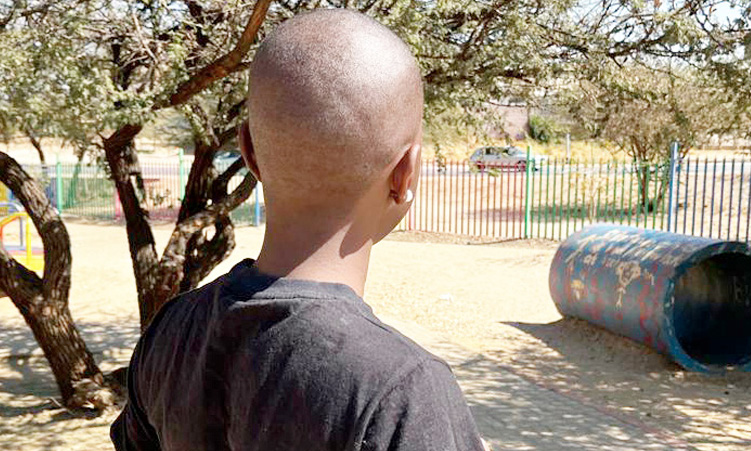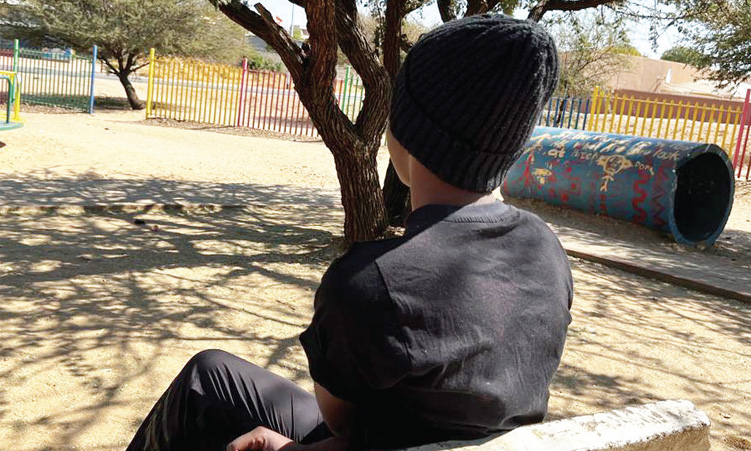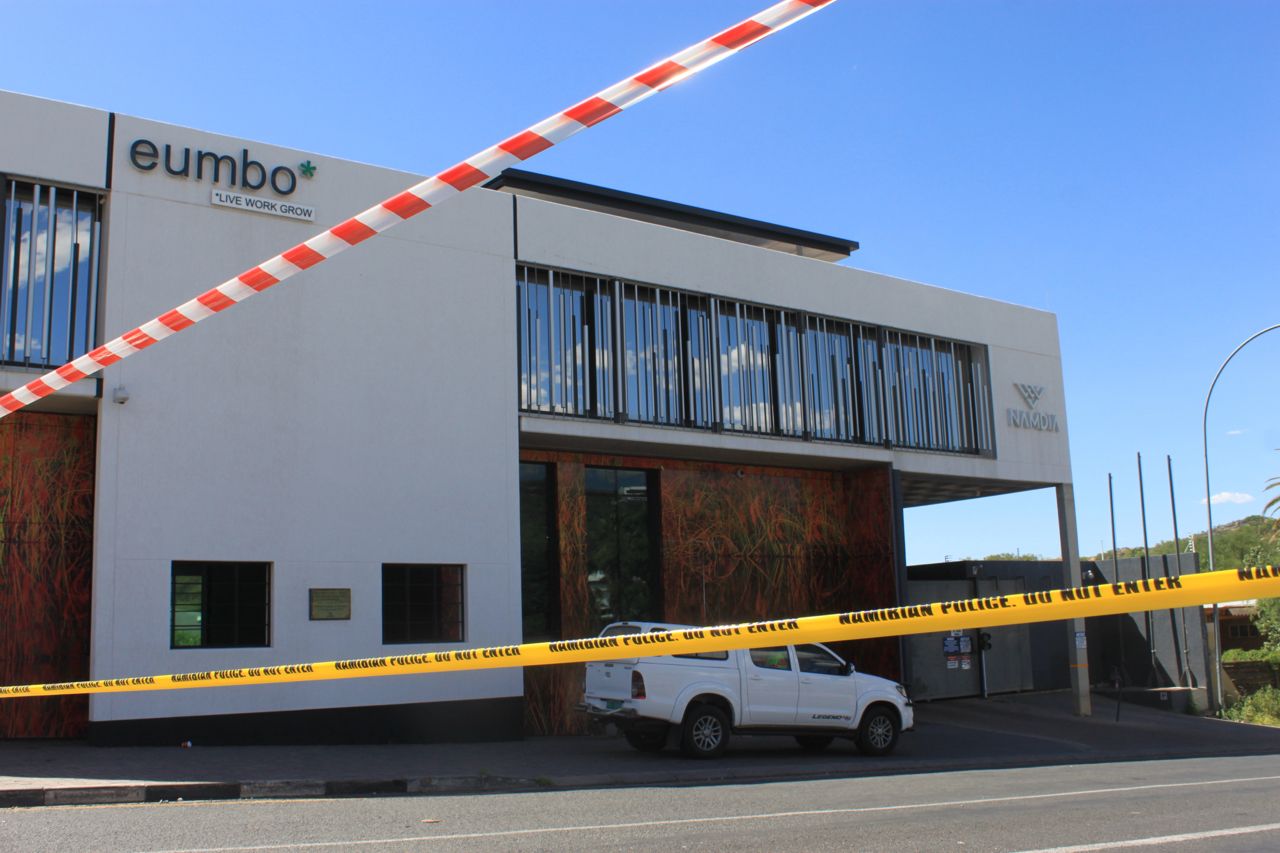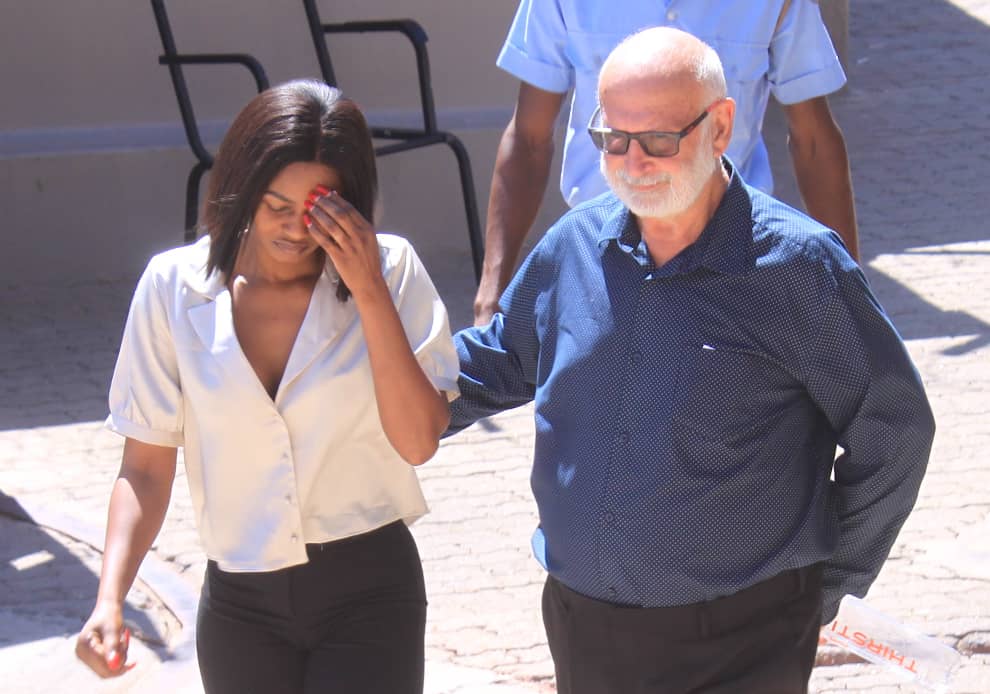…young woman to lose both breasts as she fights cancer
Mere seconds after waking up, *Hilma Shikongo (28) stands in front of the bathroom mirror and touches her bald head beneath her doek.
The headwrap offers Hilma a little comfort, shielding her head from the effects of chemotherapy sessions.
In the six months since the doctor diagnosed her with stage 1 breast cancer, Shikongo has lost weight and her hair has fallen out due to the chemo treatments.
In two months, she will lose both her breasts. Hilma undergoes treatment at the Dr A Bernhard May Cancer Care Centre at Windhoek Central Hospital every third week. Each session is a battle to fight the cancer ravaging her body.
This Monday morning is no different. It marks her second chemotherapy session since she first felt a lump in her breast in December last year.
She takes a bath, brushes her teeth and then sits on the bed contemplating what she will wear. She selects a black short-sleeved shirt, faded black jeans and black converse sneakers.
Her hands slip towards her chest. In a few months, she will have surgery to remove both her breasts.
Hilma pours herself a bowl of cornflakes and milk. And takes her multivitamins.
A white Volkswagen honks outside. It’s her boyfriend, Tangeni.

SUPPORTED … Hilma Shikongo (28) says life with cancer may be a lonely battle but she does not feel alone with her family, boyfriend and friend’s support.
“I am still in shock, I have not thought about reconstructive surgery or what my body will look like after the surgery,” she says.
Tangeni drives her to hospital every third week at 07h00, a routine that forces her to miss her classes at the University of Namibia.
“I informed my lecturers of the chemotherapy but no one else knows. I want to keep it that way, I don’t want the looks of pity from people’s eyes.”
Tangeni refuses to talk about the surgery when The Namibian asks him about the upcoming procedure. A heaviness lingers in the car.
The young couple, who have been together for six years, say they are dealing with this tribulation like all their previous obstacles – together.
“Right now, we are busy just trying to get the chemotherapy sessions finished. And after that, we will work together on dealing with each challenge as it comes,” says Tangeni.
When she arrives at the hospital, Hilma walks towards the oncology department like it is the home of someone she knows.
Even though she completed her blood work the day before – a process whereby a nurse draws a vial of her blood – she still has to wait for the results to determine if she’s strong enough for today’s treatment.
She sits in the dimly lit waiting room of the oncology ward, surrounded by fellow outpatients and a mixture of artificial and real plants, arranged like guests at a family gathering.
Both patients and medical staff wander in and out of the chemotherapy room; beyond the glass doors patients sit in reclining chairs with intravenous (IV) drips attached to their arms.
Chemotherapy involves IV medications that are administered through the drip, used to target the cancer cells and prevent them from spreading to other parts of the body.
Hilma places her card in the box. There is no queue, whoever arrives first is first. She waits for four hours in the waiting room before a nurse calls her name.
They tell her they initially have to trace her blood, which involves testing her blood levels, liver function and electrolytes.
“It’s to see if you have enough blood in the body, if your liver is working and if your body can handle chemo. Chemo eats up everything,” she says.
Hilma was given iron supplements and multivitamins to take daily after her first chemotherapy session.
If her blood levels are not stable, they will not treat her and she will be sent home.
In January, Hilma went to a private doctor, after finding the lump late last year, because the state hospital could only schedule an appointment for August. The doctor who ran the test confirmed that the lump was cancerous.
In June, she underwent surgery to remove the lump. The doctors told her chemotherapy would help stop the cancer from spreading and she would have to endure the sessions for six months.
The doctors will eventually perform a double mastectomy – a procedure to remove both her breasts, followed by a round of radiotherapy for six months.
“I’m afraid the surgery is going to leave a scar,” she says while barely touching her lunch.
The radiotherapy session will kill any cancer cells in the breast that the surgery may miss.
The Cancer Association of Namibia (CAN) says breast cancer is the second most common type of cancer found in women, regardless of age and ethnicity. Men also have the potential to be diagnosed with breast cancer, although at drastically lower rates than women.
According to CAN, a mastectomy removes tissue from one or both breasts in an effort to eliminate cancer cells or prevent cancerous tumours from forming in the future.
Breast cancer mastectomies play a vital role in cancer prevention, treatment and recovery. However, the surgery is deeply personal and emotional and requires all the decisions that accompany it to be armed with the best information at hand.
The Global Cancer Observatory in 2022 recorded 3 453 new cancer cases in Namibia, with 1 913 cases in women and 1 540 in men.
A nurse calls Hilma into the chemotherapy room where she sits in a chair in the corner. She closes her eyes, as a nurse with maroon braids guides the IV needle gently into her arm.
There is not a lot of chit-chat on this side of the glass. Family and friends are told to stay out due to limited space.
Hilma says she can feel the IV brine entering her system. She compares it to the feeling of when superheroes in movies are injected with toxic chemicals to make them stronger.
She says the uneasiness of the liquid coursing within her underscores the fact that it is needed to eliminate the cancer cells in her body.
It takes two hours for three bags of the milky IV solution to drip slowly into her veins. The chemotherapy session leaves her nauseous.
Tangeni picks her up after she completes her session. When asked about how he feels, Tangeni says he does what he can to make sure Hilma knows that she is not alone.
“It’s really hard to watch her go through this, but I’m really just trying to help her digest it. Get her used to the fact there’s really nothing we can change but our mindset,” he says.
The support Hilma has received from her family and friends after telling them about her chemotherapy treatment has helped her to focus on changing her thoughts.
“It was very shocking to them because no one expects that kind of news from someone in their 20s,” she says.
Hilma is taking things one day at a time as she learns to balance her life around her studies and chemotherapy treatment.
Counselling has changed her perspective on the cancer. She says cancer is not the end of the world and there is more to life than the condition.
“It’s really hard for me but I’m trying to digest it. Get used to the fact that, okay, there’s really nothing I can change but my thoughts,” she says.
She spends most of her time at the park near home when she feels down. A walk to the park and journalling helps her navigate the flood of emotions after a chemotherapy session. Although here she is alone, here she also knows she is not alone in her fight with cancer.
*Not her real name.
The patient has chosen to remain anonymous due to the fear of stigma regarding her condition and upcoming double mastectomy.
Stay informed with The Namibian – your source for credible journalism. Get in-depth reporting and opinions for
only N$85 a month. Invest in journalism, invest in democracy –
Subscribe Now!









